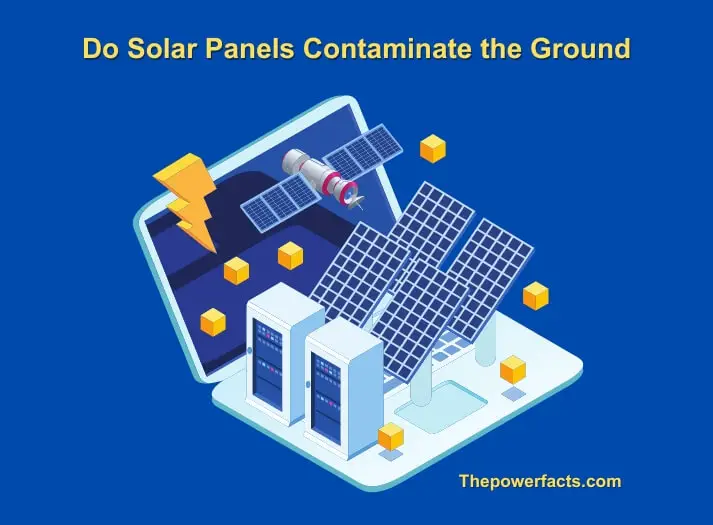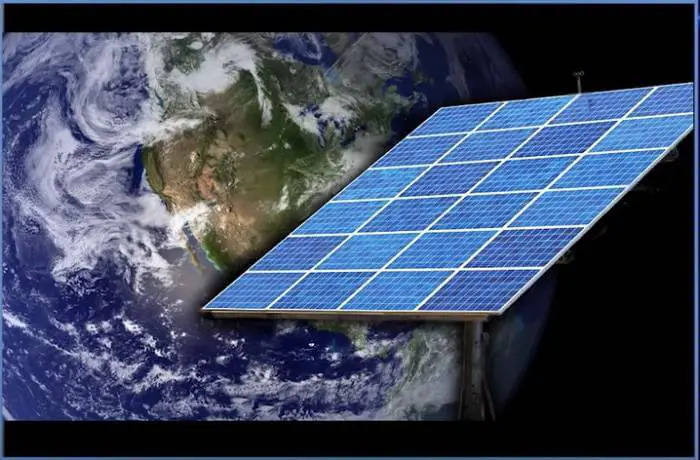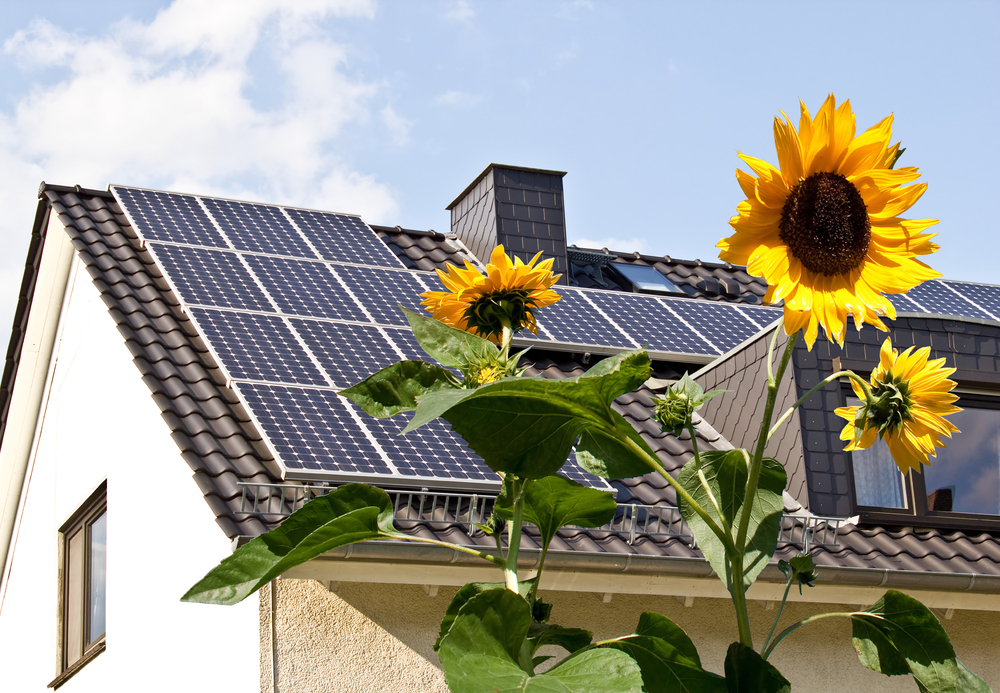Solar panels are a great way to generate renewable energy, but some people worry do solar panels contaminate the ground.

The answer is yes, in some cases. Solar panels contain metals and other materials that can be toxic to humans and the environment if they are not properly disposed of. The process of making solar panels requires a number of toxic chemicals, including cadmium, lead, and arsenic. These chemicals can contaminate the ground if they are not properly disposed of. Solar panels also contain a number of metals that can leach into the ground, including copper, aluminum, and nickel.
If you are someone who cares for nature and the earth, keep reading our article to find out more on this topic.
Do Solar Panels Contaminate the Ground: Shining a Light on the Dark Side of Solar Energy
Solar power has been hailed as the green solution to our ever-increasing energy demands, but a burning question remains: Do solar panels contaminate the ground? In this comprehensive article, we will delve into the various aspects of solar panel manufacturing, installation, and disposal to uncover the potential risks and benefits of this renewable energy source. So, buckle up and let’s shed some light on this pressing question!
Solar Panel Manufacturing: A Closer Look
Do solar panels contaminate the ground during their production? To answer this, we must first examine the manufacturing process and the materials used.
Raw Material Extraction
Solar panels are made of various materials, including silicon, silver, aluminum, and rare earth metals. The extraction of these raw materials can have environmental consequences:
Silicon: The mining of quartz, a primary source of silicon, can generate hazardous dust and contribute to soil erosion.
Silver and aluminum: Open-pit mining for these metals can lead to groundwater pollution and habitat destruction.
Rare earth metals: Extracting these metals often involves the use of toxic chemicals, which can end up contaminating the soil and water supply.
Production Process
The manufacturing process of solar panels involves several steps, such as purifying silicon, creating wafers, and assembling the final product. During these stages, there is potential for ground contamination:

Chemical waste: The production of solar panels generates waste materials, including hazardous chemicals like hydrofluoric acid, which can seep into the ground if not properly managed.
Solar Panel Installation: The Ground Beneath Our Feet
While installing solar panels, are we unknowingly contaminating the ground? Here’s what you need to know.
Ground-mounted Solar Panels
When it comes to ground-mounted solar installations, there are a few concerns:
Soil compaction: Heavy machinery used during installation can compact the soil, potentially affecting plant growth and water absorption.
Soil erosion: If not properly managed, the construction process can cause soil erosion, which can lead to sedimentation in nearby waterways.
Rooftop Solar Panels
On the other hand, rooftop solar installations have fewer ground contamination concerns, as they don’t involve direct contact with the soil.
The End of the Line: Solar Panel Disposal
Solar panels typically have a lifespan of 25 to 30 years. What happens when they reach the end of their life? Do solar panels contaminate the ground upon disposal?
Landfills
If solar panels end up in landfills, there is a risk of ground contamination due to the leaching of toxic substances, such as lead and cadmium, into the soil.
Recycling
Recycling solar panels can help mitigate the potential ground contamination risks. However, the recycling process itself can generate hazardous waste, which needs to be managed properly to avoid soil pollution.
Are Solar Panels Hazardous Waste
The environmental impact of solar panels has been a hot topic in recent years. Solar panels are made up of a variety of materials, including metals and plastics, which can be recycled or reused. The recycling process for solar panels is not always straightforward, and some waste management experts have raised concerns about the potential hazards of solar panels.
Solar panels are classified as hazardous waste in some jurisdictions because they contain metals that can be toxic to humans and the environment. Lead, cadmium, and selenium are all found in solar panels, and they can leach into the soil and water if the panels are not properly disposed of. In addition, solar panels also contain a variety of other materials, including glass and plastics, which can be difficult to recycle.
How to Recycle Solar Panels?
So, if you’re wondering whether solar panels can be recycled, the answer is yes! And it’s a good thing, too, because recycling solar panels helps to reduce waste and conserve resources.
There are a number of ways to recycle solar panels, but the most common method is to send them to a certified recycling facility. These facilities are equipped to handle the special waste created by solar panels. Not all solar panels can be recycled, and some must be disposed of as hazardous waste.
- The best way to ensure that solar panels are recycled properly is to check with your local waste management authority to see what regulations apply in your area. Many jurisdictions have specific requirements for the disposal of solar panels, and it is important to follow these regulations to avoid penalties.
- There are a number of ways to recycle solar panels, but the most common method is to send them to a certified recycling facility. These facilities are equipped to handle the special waste created by solar panels. However, not all solar panels can be recycled, and some must be disposed of as hazardous waste.
- For example, the metals in solar panels can be used to make new solar panels or other metal products. The glass can be used to make new windows or other glass products. And the plastics can be used to make new plastics products.
By following these regulations, you can help to ensure that solar panels are recycled properly and do not pose a risk to the environment. Read more: What Side of House is Best for Solar Panels?
How Much Does It Cost to Recycle Solar Panels
Solar panels are one of the most popular forms of renewable energy, and recycling them is important to keep them out of landfills. The cost of recycling solar panels varies depending on the type of panel and the company you use, but it is typically around $0.50 per panel.
Non-Toxic Solar Panels
Solar panels are an increasingly popular way to power homes and businesses. They are a clean, renewable source of energy that can help reduce your carbon footprint. But did you know that not all solar panels are created equal?
Some solar panels are made with toxic materials that can be harmful to the environment.
Most solar panels on the market today are made with crystalline silicon, which is a combination of silicon and carbon. While this material is not considered to be toxic, the manufacturing process can release harmful chemicals into the air.
These chemicals can include hydrofluoric acid, sulfur dioxide, and nitrogen dioxide.
Fortunately, there are a few companies that are making solar panels with non-toxic materials. One company, called Solyndra, makes solar panels with a material called CIGS (copper indium gallium selenide).
This material is not only non-toxic, but it is also more efficient at converting sunlight into electricity.
If you are interested in powering your home or business with solar panels, be sure to do your research to find panels that are made with non-toxic materials. Not only will you be helping to protect the environment, but you’ll also be getting a more efficient product.
How Much Pollution is Made When Making Solar Panels
Solar panels are a clean and renewable source of energy, but they do require some manufacturing processes that can release pollutants into the environment. The most significant pollution associated with solar panel production is the release of hazardous chemicals and heavy metals, which can pollute the air, water, and soil.
The good news is that solar panel production has become much cleaner in recent years, thanks to new technologies and regulations that have reduced the release of pollutants.
But there is still room for improvement, and it’s important to be aware of the potential environmental impacts of solar panel production before you make the switch to solar. If you’re considering solar panels for your home or business, be sure to do your research and buy from a reputable manufacturer that has a good track record of environmental responsibility.
With solar panels, you can enjoy the benefits of clean, renewable energy while minimizing your impact on the planet.
Solar Panel Leaching
The process of solar panel leaching is when rainwater or other forms of moisture wash away the chemicals that are used to create the solar panel. This can happen over time, and it can also happen if the solar panel is damaged. Solar panel leaching can cause environmental problems because the chemicals that are washed away can pollute the ground and water.
Solar Panel Waste Problem
The world is facing a solar panel waste problem. In the next 30 years, the world is expected to generate nearly 600 million metric tons of solar panel waste—the equivalent of 32 Empire State Buildings. And, according to a recent report from the International Renewable Energy Agency (IRENA), only 60% of that waste will be recycled.
The problem is that solar panels are made of a mix of glass, metal, and plastic, and recycling them is expensive and complicated. The most common way to recycle solar panels is to shred them into small pieces and then separate the glass, metal, and plastic. But this process is only about 50% effective, and it produces a lot of solar panel waste that still has to be disposed of.
IRENA estimates that, if we don’t change the way we recycle solar panels, the solar panel waste problem will cost the world $15 billion by 2050. So what can be done about the solar panel waste problem? IRENA has a few suggestions:
1. Improve solar panel design to make them easier to recycle.
2. Increase the use of recycled materials in solar panels.
3. Develop new recycling technologies to improve recycling rates.
4. Create incentives for companies to recycle solar panels.
5. Raise awareness about the solar panel waste problem.
Solar panel waste is a serious problem that needs to be addressed. But with the right policies and technologies in place, we can solve it.
Are Solar Panels Environmentally Friendly
Are Solar Panels Environmentally Friendly? This is a question that is often asked by those considering making the switch to solar power. And the answer may surprise you.
1. Solar panels are made from silicon, which is a naturally occurring element. They convert sunlight into electricity, which can then be used to power your home or business.
2. Solar panels do not produce any emissions or pollutants, making them a clean and renewable energy source. In addition to being environmentally friendly, solar panels are also very efficient. They can convert up to 20% of the sunlight they receive into electricity.
3. Solar panels also have a very long lifespan. They are typically warrantied for 25 years, but many panels will last much longer than that. Finally, solar panels are very cost-effective.
The initial investment may be higher than other energy sources, but solar panels will quickly pay for themselves and provide years of free, clean energy. If you are looking for an environmentally friendly and efficient way to generate electricity, solar panels are the way to go.

Do Solar Panels Have Toxic Runoff?
Solar panels are an increasingly popular way to generate electricity, but there is some concern about the potential for toxic runoff from these panels. The main concern is with the materials used in solar panels, specifically the cadmium and lead used in the solar cells. These heavy metals can leach into the environment if the solar panels are not properly disposed of, and can cause health problems if they are ingested or inhaled.
There are a few ways to mitigate the risk of toxic runoff from solar panels. One is to recycle the panels when they are no longer in use. This ensures that the heavy metals are properly contained and can be safely disposed of.
Another way to reduce the risk of toxicity is to use solar panels made with alternative materials that do not contain cadmium or lead. There are a number of these types of solar panels on the market, and they are becoming increasingly popular as technology improves. If you are considering solar panels for your home or business, it is important to do your research and choose a reputable manufacturer.
Make sure to ask about the materials used in the solar cells, and what kind of recycling or disposal options are available. With a little bit of care, you can enjoy the benefits of solar power without worrying about the potential for toxic runoff.
Frequently Asked Question
Do Solar Panels Contaminate the Ground During Normal Operation?
No, solar panels do not release any pollutants or contaminants into the ground during their normal operation.
Are There Regulations in Place to Minimize Ground Contamination During Solar Panel Manufacturing and Disposal?
Yes, there are regulations in place to manage waste and prevent ground contamination in both manufacturing and disposal processes. However, the effectiveness of these regulations can vary depending on the country and the level of enforcement.
Do Solar Panels Damage the Ground?
No, solar panels do not damage the ground. In fact, they can actually help to protect the ground from erosion and other types of damage. Solar panels are typically made from durable materials that can withstand the elements, so they can actually help to extend the life of your ground cover.
Do Solar Farms Contaminate the Soil?
No, solar farms do not contaminate the soil. In fact, they can actually help to improve the quality of the soil. The plants and trees that are typically found on solar farms help to improve the soil by providing essential nutrients and organic matter.
Additionally, the roots of these plants help to aerate the soil and improve its drainage.
What Do Solar Panels Do to the Soil?
Solar panels have a number of benefits for the soil. They can help to improve soil quality by providing a source of nutrients and improving drainage. Solar panels can also help to reduce soil erosion by providing a barrier to wind and rain.
In addition, solar panels can help to increase the amount of organic matter in the soil, which can improve the soil’s ability to retain water and improve its fertility.
Conclusion
Solar panels are a clean and renewable source of energy. But at the same, we should keep looking for better materials so that there is going to be less damage to our environment. That is the end of the article. We hope now you know more about Solar panels and how they affect our environment. Remember there is always the option to choose nontoxic solar panel material.